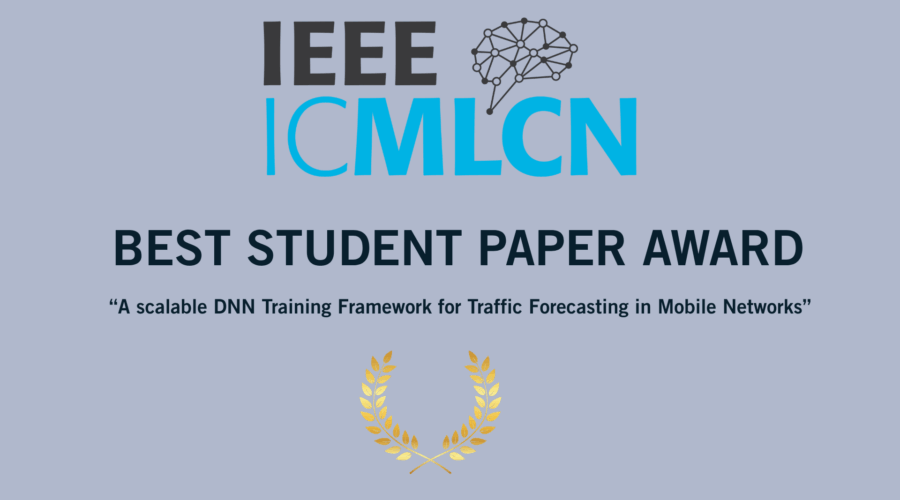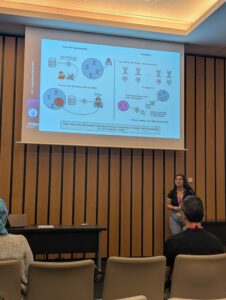IMDEA Networks

IMDEA Networks receives the ‘Best Student Paper Award’ for its next-generation AI for mobile traffic
The awarded paper, titled “A scalable DNN Training Framework for Traffic Forecasting in Mobile Networks", was co-authored by Serly Moghadas Gholian, Claudio Fiandrino, and Joerg Widmer
11 June 2025

Researchers from IMDEA Networks have received the prestigious Best Student Paper Award for their work “A scalable DNN (Deep Neural Network) Training Framework for Traffic Forecasting in Mobile Networks” at the IEEE International Conference on Machine Learning for Communication and Networking 2025, held in Barcelona from May 26 to 29. The paper, a collaborative effort by Serly Moghadas Gholian, Claudio Fiandrino, and Joerg Widmer, addresses a crucial challenge in deploying artificial intelligence (AI) models in real-world network environments: scalability.
 Traditionally, conventional methods for traffic forecasting in mobile networks involved collecting data from every base station and training an individual model for each. While effective, this approach leads to high computational costs and considerable difficulties in large-scale maintenance.
Traditionally, conventional methods for traffic forecasting in mobile networks involved collecting data from every base station and training an individual model for each. While effective, this approach leads to high computational costs and considerable difficulties in large-scale maintenance.
The awarded research proposes an innovative solution by clustering base stations with similar traffic patterns and training a single model per cluster. To further optimize data input requirements, the authors have integrated Explainable AI (XAI) techniques to select only the most influential base stations within each cluster.
This approach has proven exceptionally efficient, achieving an 81% reduction in required data probes without compromising forecasting accuracy. It maintains state-of-the-art performance. This makes the proposed framework highly scalable and sustainable for real-world applications.
Serly Moghadas Gholian, the paper’s main author, shared her enthusiasm: “I also had the honor of winning the Three Minute Thesis (3MT) competition at IEEE International Conference on Machine Learning for Communication and Networking 2025, where I explained the two key challenges in deploying AI in mobile networks—scalability and explainability—and how my thesis addresses them, all in just three minutes!”. This additional recognition underscores the relevance and impact of the presented work.


Recent Comments